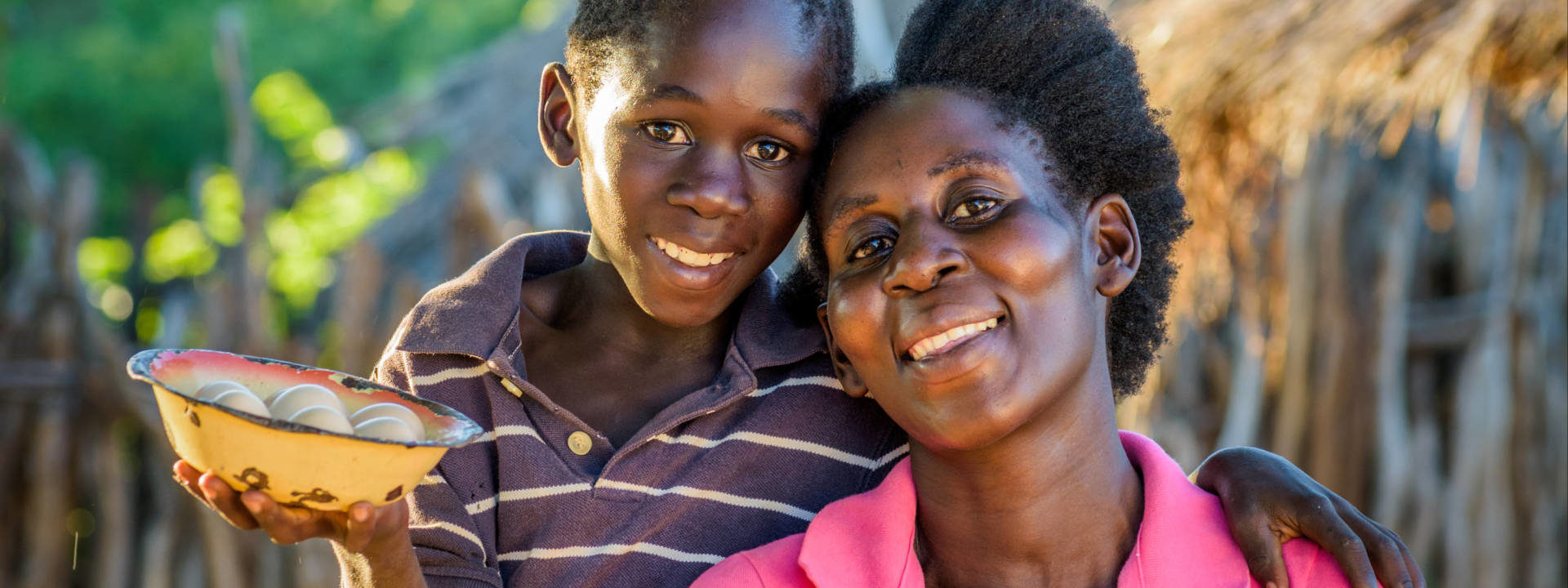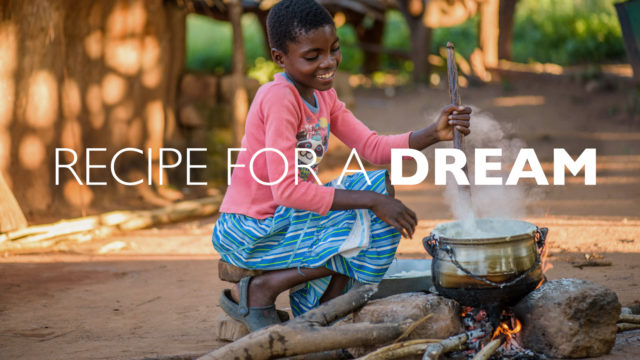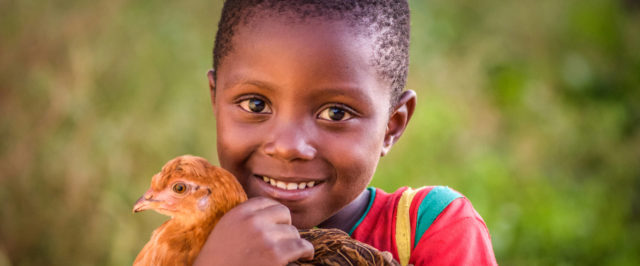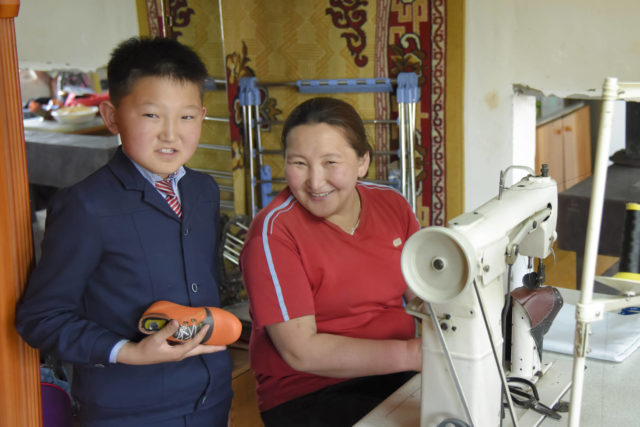Catherine Syasulwe heard that people attending World Vision’s livestock management training in Sinazongwe, Zambia, might receive animals through the Gift Catalog, so she went to the meeting. But when the World Vision staff told all the trainees that they were getting chickens, she remembers thinking: “A chicken, so what! Can they do anything?”
Catherine continues to be surprised at how many ‘anythings’ just four Gift Catalog chickens can produce.
A not-too-distant
past of poverty
A not-too-distant past of poverty
The year was 2006 and Catherine was just divorced from her husband. Pregnant with her son, Padrick and living with her parents Robert Syasulwe and Mary Phiri, the family struggled mightily.
They didn’t have enough food. They owned no animals, which meant they had no savings. Catherine didn’t know how she would provide for the baby on the way.
Then World Vision came with the offer for livestock management training. Just a year before, Catherine had watched both her parents receiving training in conservation farming from World Vision.
So Catherine was familiar with World Vision and recognized them as a trustworthy organization, but still, after the training she hoped for something more than four chickens.
“Something told me work hard, take care of [the chickens] using the skills you’ve been given,” she says. “I didn’t realize the potential in those chickens.” In a short time, the four chickens became 15, then 30.
Using the chickens, she purchased ducks, followed by goats, then pigs. The animals elevated her stature in the community. Before, when the family struggled, Catherine often heard people whispering about her when she walked by: “Look she’s already coming because she’s coming to beg.” The cruel words wounded her.
Thanks to the many animals she owns today, neighbors now desire her company. “Today if I am passing by, they will call me and say, ‘Can you come here?’”
Gift Catalog chickens
help a family
to dream
Gift Catalog chickens
help a family
to dream
In addition to her expanding menagerie, 33-year-old Catherine’s family hasn’t finished growing either. Four years ago she remarried and recently gave birth to 1-month-old Robert Syamwela.
Catherine can now dream extravagantly for her children. “I want my child to have a bright future through education,” she says. “[And] with the wealth that God has blessed us with right now, I won’t allow my son to miss the opportunity to finish his education.”
That opportunity passed her by when she quit school in ninth grade because her parents couldn’t afford the costs. Thankfully Padrick looks to be on a strong school path. The shy boy likes his mathematics classes best and hopes to be a teacher when he grows up.
“Whatever he needs we’re able to provide,” Catherine says. “He goes to school filled up, not hungry.”
In fact no one in the family goes hungry. They eat plenty. Catherine laughs as she shows off her arm muscles. People in the community refer to the family as giants because they eat so well.
Padrick also faces a more hopeful future thanks to a World Vision child sponsor in the United States, who’s been sponsoring him for more than 7 years. “I am very happy because this child has a friend who thinks of him,” says Catherine about Padrick’s sponsor.
Safety nets through savings
groups in Zambia
Safety nets through savings
groups in Zambia
In 2009, World Vision introduced savings groups in Sinazongwe. Catherine and her mother, Mary both eagerly joined. They learned money management skills.
They and other group members borrowed money, paying it back within the 2-month time frame. This resulted in increased savings due to the interest payments on the loans. Those savings provided a safety net to Catherine’s formerly impoverished family.
The family used this money to invest in better seeds, farm equipment, solar panels, and a new business selling dried fish from nearby Lake Kariba. Now they have fresh sources of income that aren’t all dependent on the rains. That’s a good thing because El Nino is causing drought to plague southern Africa.
Catherine and Mary remain undaunted. They’re using the water-conserving farming techniques Mary learned back in 2005 for their fields and their home gardens. Since the home garden sits closer to the stream, it flourishes more than the fields, but both continue to produce healthy food for the family to eat and also to sell. In fact, they lean heavily on produce sales to provide for their family.
Catherine laughs when asked if her now bountiful life has affected her faith. “Right now I want to dance,” she says. “My faith has grown so much that I don’t even know the kind of dance that I can use for the Lord, just to show my joy for what he has done for me through this support.
She says it’s like God sent the Gift Catalog chickens straight to her as a present just to change her path. She looks around at her healthy children, at her own health, at the garden and fields, at the animals roaming around the home and says, “All this would have not been possible without the chickens,” says Catherine.
And with that Catherine answers her question about whether or not a chicken can do anything. In a word, yes.



